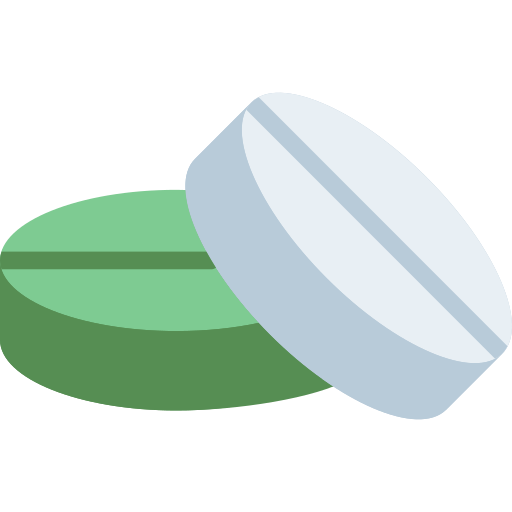
Telmisartan + Hydrochlorothiazide
40 mg+12.5 mg
General Pharmaceuticals Ltd.
Product Details
Description
This is contraindicated in patients with known hypersensitivity (e.g., anaphylaxis or angioedema) to Telmisartan, Hydrochlorothiazide or any other component of this product. Do not co-administer Aliskiren with this tablet in patients with Diabetes.
Common side effects include dizziness, drowsiness, tired feeling, flushing (warmth, redness, or tingly feeling), back pain, nausea, diarrhea, stomach pain. Other adverse events include allergy, fever, leg pain, chest pain, insomnia, somnolence, and dry mouth, elevations of liver enzymes or serum bilirubin, leg cramps, myalgia, dermatitis. Other adverse events that have been reported includes weakness, gastric irritation, photosensitivity, urticaria, muscle spasm, restlessness.
Pregnancy Category D. Use of drugs that act on the renin-angiotensin system during the second and third trimesters of pregnancy reduces fetal renal function and increases fetal and neonatal morbidity and death. Resulting oligohydramnios can be associated with fetal lung hypoplasia and skeletal deformations. Potential neonatal adverse effects include skull hypoplasia, anuria, hypotension, renal failure, and death. When pregnancy is detected, discontinue Telmisartan and hydrochlorothiazide as soon as possible. Nursing Mothers: It is not known whether telmisartan is excreted in human milk, but telmisartan was shown to be present in the milk of lactating rats. Thiazides appear in human milk. Because of the potential for adverse effects on the nursing infant, decide whether to discontinue nursing or discontinue the drug, taking into account the importance of the drug to the mother.
Before using this medication, tell your doctor about your medical history, especially of kidney disease, liver disease, bile duct blockage, loss of too much body water and/or minerals (dehydration), untreated mineral imbalance (such as low or high potassium), gout, lupus. If you have diabetes, this medication may affect your blood sugar. Check your blood sugar regularly as directed by your doctor. This product may affect your body potassium levels. Before using potassium supplements or salt substitutes that contain potassium, consult your doctor. This drug may make you dizzy. Do not drive, use machinery, or do anything that needs alertness until you can do it safely. Report prolonged diarrhea or vomiting to your doctor. Be sure to drink enough fluids to prevent dehydration unless your doctor directs you otherwise.
Pediatric Use: Safety and effectiveness of Telmisartan and Hydrochlorothiazide in pediatric patients have not been established. Geriatric Use: In general, dose selection for an elderly patient should be cautious, usually starting at the low end of the dosing range, reflecting the greater frequency of decreased hepatic, renal or cardiac function and of concomitant diseases or other drug therapy. Use in Patients with Hepatic Impairment: Patients with biliary obstructive disorders or hepatic insufficiency should initiate treatment under close medical supervision. Use in Patients with Renal Impairment: Safety and effectiveness of Telmisartan and Hydrochlorothiazide in patients with severe renal impairment (Cr.Cl. <30 ml/min) have not been established. In patients with severe renal impairment, Telmisartan and Hydrochlorothiazide tablets are not recommended. No dose adjustment is required in patients with mild (Cr.Cl. 60 to 90 ml/min) or moderate (Cr.Cl. 30 to 60 ml/min) renal impairment.
The most likely manifestations of overdosage are hypertension, dizziness, tachycardia, bradycardia, hypokalemia, hypochloremia, hyponatremia and dehydration etc. Telmisartan is not removed by hemodialysis and the degree to which hydrochlorothiazide is removed by hemodialysis has not been established.
Combined antihypertensive preparations
-
Support 24/7
Call us anytime -
100% Safety
Only secure payments